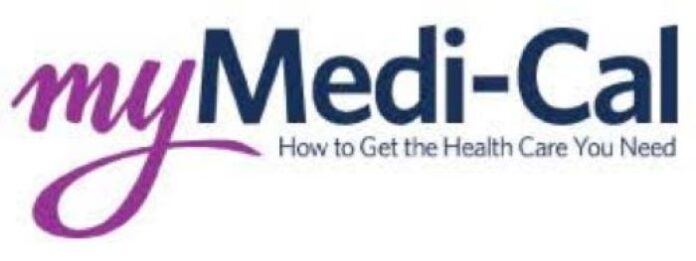
By McKenzie Jackson, California Black Media
Medi-Cal members have access to a variety of services that address their social, physical, and mental health needs beyond hospitals and doctors’ offices. Thanks to a two-year-old initiative launched by the California Department of Health Care Services (DHCS).
DHCS Deputy Director of Health Care Programs Sarah Brooks stated that the department’s California Advancing and Innovating Medi-Cal (CalAIM) initiative is a program aimed at improving the lives and health of the 15 million Golden State residents who are enrolled in the state’s health insurance exchange.
“Health systems can be burdensome to navigate,” she said. “We’re working hard to revolutionize that by simplifying and broadening how members across the state access care, helping them live more independently and safely at home. We are making it easier for members to get the quality care they need.”
One in three Californians are enrolled in Medi-Cal, California’s version of the federal Medicaid program. Medi-Cal primarily covers the medical expenses of adults and children from families with low income. With the launch of CAlAIM in 2022, DHCS is transforming Medi-Cal into a comprehensive insurance program designed to improve health equity, quality of care, and well-being of users by expanding access to coordinated, whole-person care, and addressing health-related social needs.
Brooks was one of several health officials who discussed the impact CalAIM is having on the lives of Californians during an April 11 Zoom call organized by California Black Media and Ethnic Media Services.
That video conference was the first of six briefings scheduled for this month and next designed to inform Californians about how Medi-Cal is transforming health care services and ensuring that enrollees maintain their health coverage.
Enhanced Care Management (ECM) and Community Supports are the two changes to Medi-Cal, according to state public health officials.
The ECM benefit, available statewide, offers comprehensive care coordination to eligible Medi-Cal enrollees with complex health needs, including the integration of social services. It is implemented by community-based providers who have expertise and knowledge to assist individuals with severe mental, physical, or social needs, or who need assistance navigating the health care system and are too ill or impaired to do it alone.
These at-risk Medi-Cal enrollees, Brooks said, include people experiencing homelessness, foster youth, pregnant women and their kids, adults at risk of being institutionalized, and people transitioning from nursing homes back into the community.
“They receive help from care managers no matter where they are,” Brooks said, adding that lead care managers help people navigate services like basic care, dental, mental health, long-term care, and disorder treatment.
Lead care managers also arrange transportation to medical appointments and find transitional housing and other community support programs.
Community Supports are services that address Medi-Cal users’ social needs to help them live healthier lives and avoid higher cost levels of care. The program offers help finding housing and funding for housing costs such as security deposits, utility set-up fees, first and last month’s rent, and the first month of utilities. Additionally, Community Supports offers assistance with short-term, post-hospitalization
housing, recuperative care, and access to medically tailored meals and other community-based services.
Brooks said the initiative was created to enhance lives.
“We know people experiencing homelessness have higher mortality rates than the general population,” she said. “They also experience more frequent and longer hospital stays. Community Supports can help people find homes.”
Pacific Clinics Senior Clinical Director Rachelle Grant said the Medi-Cal revamp is important.
“Other states are not doing this,” she said. “Other health plans are not doing this.”
Pacific Clinics, California’s largest nonprofit behavioral health provider, aids youth and adults witch acute health and substance abuse challenges.
The organization has implemented ECM and Community Supports services in 20 counties.
Grant touted aspects of Medi-Cal transformation that have been an asset to enrollees at Pacific Clinics including a housing support program that gives $5,000 to $6,000 loans.
Grant shared the story of a patient, who she called an “EMC success story.” The man had previously been hospitalized due to mental health problems. He had a brain injury, was homeless and was dealing with substance use disorder.
A lead care manager assessed the man’s situation and put him on a treatment plan that included a place to reside, therapy, psychiatry sessions, and transportation to those appointments.
“Now, he is engaging in so many amazing activities,” Grant stated. “He is going on daily walks, playing pickleball. He is having positive relationships with caregivers. It is amazing the transformation we have seen through our work together.”
Angelica Rodriguez, program manager at Umma Community Clinic, which provides health services to Black and Latino people in South Central Los Angeles, said the clinic is looking forward to integrating the CalAIM initiatives.
“There are so many ways we can fall through the cracks,” she said. “Some can’t afford to take time off work when health centers are open nine to five on weekdays. Others can’t seek care due to language or cultural barriers or have to take multiple buses to get to the closest clinic. Some can’t afford nutritious foods to help them stay healthy. Now, we can address these issues beyond the clinic walls.”
“I’m excited to witness this transformation to provide community support,’ Rodriquez added.


